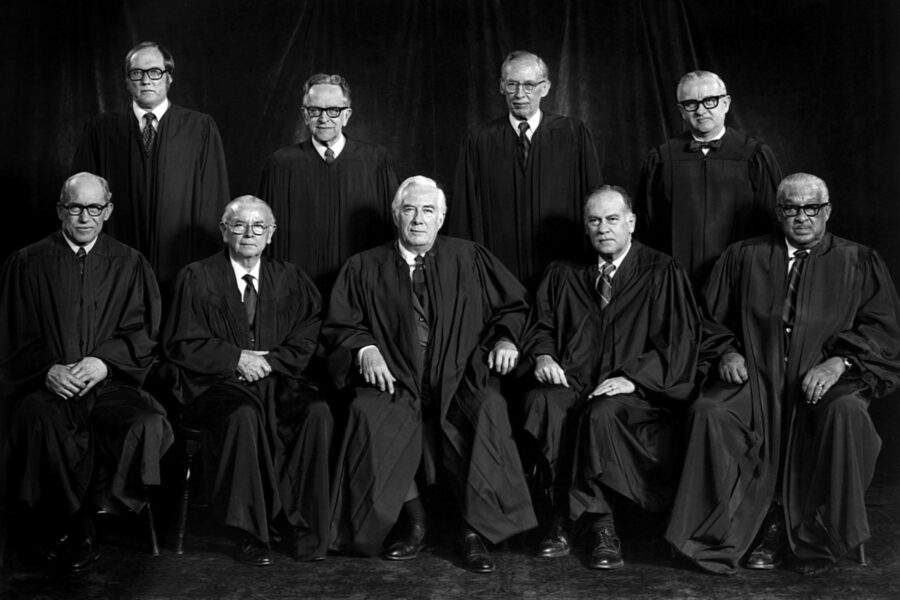July 2 is Thurgood Marshall Day
Pictured with the U.S. Supreme Court, Thurgood Marshall, in the front row at the far right, became an Associate Justice in 1965. A survey in 1999 showed that black political scientists listed Marshall as one of the ten greatest African-American leaders in history. (U.S. Library of Congress/Public Domain)
July 2, 2023
July 2nd, also known as Thurgood Marshall Day, commemorates the U.S. Supreme Court Justice’s birthday.
From humble beginnings and college rejections to becoming the first black Supreme Court justice, Thurgood Marshall has paved the way for many minority groups in America.
The start of Marshall’s legacy begins in Baltimore, Maryland where he was rejected from the University of Maryland law due to being black. After graduating from Lincoln University in Pennsylvania, he continued to pursue law at Howard University.
Marshall married Vivian “Buster” Burey on September 4, 1929, while he was a student at Lincoln University. They remained married until she died from cancer in 1955. Marshall married Cecilia “Cissy” Suyat, an NAACP secretary, eleven months later.
His work as a lawyer focused on civil rights. Marshall’s first legal case was a civil suit against the University of Maryland Law for denying admission to black applicants. One of his most famous cases today is the Brown V. Board of Education suit where they argued that separating children in public schools based on race was unconstitutional. Fighting against segregation in public schools helped catapult the civil rights movement, making it possible for advances in desegregating housing, public accommodations, and institutions of higher education. Not only did this help the civil rights movement but it led the way for all people, regardless of race, gender, or disability, to have a right to a public education.
Marshall quickly became one of the leading attorneys in America. He argued 32 cases in front of the Supreme Court and won 29.
He was later nominated to the Court of Appeals in 1961. Four years later he was appointed to the Supreme Court by President Lyndon B Johnson. His liberal views led him to frequently dissent with the other justices as the Court became increasingly Conservative. He dissented in more than 1,400 cases. His closest ally on the Court was Justice William J. Brennan Jr., and the two voted the same way in most cases. He opposed the death penalty, which in his view constituted cruel and unusual punishment. Marshall favored the First Amendment in decisions such as Stanley v. Georgia, and he supported abortion rights in Roe v. Wade and other cases.
A survey in 1999 showed that black political scientists listed Marshall as one of the ten greatest African-American leaders in history.
Marshall retired in 1991 due to his declining health. Marshall cited his ″advancing age and medical condition″ in a letter to President Bush announcing he would leave the court ″when my successor is qualified.″
His departure gave Bush a chance to make his second appointment to the high court, after David Souter. Clarence Thomas ended up being appointed.
Marshall died in 1993 due to heart failure.
There are numerous tributes dedicated to Marshall. Maryland renamed Baltimore’s airport the Baltimore/Washington International Thurgood Marshall Airport in 2005, and the University of Maryland’s law library is named in his honor.







